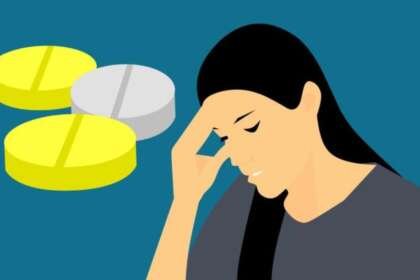Sociopathy, or Antisocial Personality Disorder (ASPD), is a severe mental illness that involves persistently selfish, cruel, and uncaring behavior, as well as a lack of empathy and the ability to empathize with others.
People with sociopathy may appear pleasant and interesting on the surface, but they actually suffer from a severe lack of empathy and a penchant for destructive actions.
Psychologists, psychiatrists, and researchers have pondered for decades the possibility of treating or curing sociopathy.
In this in-depth post, we’ll look at what sociopathy is, what causes it, and the several ways it’s been treated throughout the years.
Understanding Sociopathy
Personality disorders, of which sociopathy is a kind, are defined by long-term patterns of thought, feeling, and action that are drastically at odds with the norms of the person’s culture. A sociopath’s defining characteristics include:
- Lack of Empathy: People who suffer from sociopathy frequently demonstrate a severe lack of empathy. They may come across as heartless, emotionless, and unable to empathize.
- Manipulative Behavior: Sociopaths are experts at getting what they want out of life by using the people around them to further their own agendas.
- Impulsivity: They are impulsive and fail to think things through, which can lead to dangerous and even dangerously risky actions.
- Criminal Involvement: Theft, fraud, violence, and even murder are all crimes that many people with sociopathy have committed in the past.
- Superficial Charm: Because of their remarkable charisma and charm, sociopaths often fool people into thinking they can be trusted.
- Shallow Relationships: Since they have trouble developing meaningful friendships, the relationships they do have tend to be superficial and short-lived.
- Lack of Remorse: Those who fit the sociopath profile rarely express regret for their destructive deeds and are skilled at making excuses for or placing the blame on others.
Causes of Sociopathy
There is still much to learn and much room for discussion about what triggers sociopathy. No single reason has been found, although research suggests a combination of genetic, environmental, and neurological variables. Among the factors that could lead to sociopathy are:
- Genetic Factors: There appears to be a genetic link to sociopathy, according to the studies conducted so far. Researchers have found that people with a close relative who suffers from ASPD have a greater chance of having the ailment themselves.
- Childhood Environment: The risk of becoming a sociopath is raised when a kid endures traumatic events or stresses, such as physical or emotional abuse, neglect, or witnessing or experiencing violence. It’s also possible that factors like a chaotic home life play a role.
- Brain Abnormalities: Researchers have found that people with ASPD have distinct abnormalities in brain anatomy and function. These variations may have an effect on how we process our emotions and regulate our impulses.
- Neurobiological Factors: Sociopathy has been linked to dysfunctions in neurotransmitter systems like serotonin and dopamine. These discrepancies may enhance impulsive and violent tendencies.
- Environmental Factors: It has been hypothesized that being immersed in a society that accepts or promotes antisocial behavior may play a role in the emergence of sociopathy.
Not everyone who shares a number of these vulnerabilities will go on to develop sociopathy, and the degree of the illness varies widely among those who do. There are certain indications of sociopathy that can be seen in younger children, but often the disorder does not emerge until late adolescence or early adulthood.
Related: Common Characteristics of a Sociopath: Exploring the Mysteries of Antisocial Behavior
Treatment Approaches for Sociopathy
Because people with sociopathy frequently lack the drive or understanding necessary for successful therapy, addressing this illness is a difficult and complex task.
Although there is currently no treatment that may permanently reverse the effects of sociopathy, a number of methods have been developed to alleviate its negative impact.
The goals of these methods are to boost the person’s functionality, reduce negative behaviors, and increase their quality of life. The following are examples of approaches used to cure sociopaths:
1. Psychotherapy
a) Cognitive-Behavioral Therapy (CBT): Disruptive patterns of thought and action are the primary targets of cognitive behavioral therapy. Although it may not be effective in treating sociopathy, it can assist people with ASPD learn to control their emotions and behave more appropriately in social situations.
b) Dialectical Behavior Therapy (DBT): DBT integrates cognitive-behavioral therapy (CBT) with mindfulness and skills for managing difficult emotions. The impulsive and self-destructive actions associated with sociopathy may benefit from this approach.
c) Schema Therapy: With this method, people are able to recognize destructive thought and behavior patterns and alter them. It has the potential to help with communication and coping issues.
d) Group Therapy: People who struggle with sociopathy can benefit from participating in group therapy because it provides them with a safe space to practice social skills, learn from the experiences of others, and get constructive criticism.
2. Medication
Medications are not a primary treatment for sociopathy itself, but they may be prescribed to manage specific symptoms or co-occurring conditions. For example:
a) Antidepressants: Depression and anxiety are frequent in people with sociopathy, and these can help.
b) Mood Stabilizers: Mood stabilizers have been shown to reduce aggressive and impulsive behavior in some patients.
c) Antipsychotic Medications: If psychotic or agitational symptoms are present, they may be prescribed.
3. Skill Development
Individuals with sociopathy can benefit from learning techniques for regulating their emotions and expressing themselves more effectively. They will be better able to contribute to society with these abilities.
4. Social Support and Supervision
Those who suffer from sociopathy can be deterred from criminal activity if they are provided with a stable and supportive social network. Individuals associated with the criminal justice system may also be subject to parole or probation programs that need constant monitoring and therapeutic contact.
5. Risk Management
It’s crucial to figure out ways to keep oneself and others safe. Crisis management and other preparatory measures may be necessary.
Challenges in Treating Sociopathy
Treating sociopathy presents several challenges, some of which are inherent to the nature of the disorder:
- Lack of Motivation: Many individuals with sociopathy do not see anything wrong with their behavior and may resist treatment. This lack of insight and motivation can hinder the therapeutic process.
- Treatment Resistance: Sociopathy is considered one of the most treatment-resistant personality disorders. Progress can be slow and incremental, and there is no guarantee of complete remission of symptoms.
- High Relapse Rates: Even when individuals with sociopathy make progress in therapy, they remain at a high risk of relapse into destructive behaviors.
- Limited Research: The rarity of sociopathy and the ethical challenges of conducting research on this population have limited our understanding of effective treatments.
- Co-occurring Disorders: Many individuals with sociopathy also have co-occurring conditions, such as substance abuse, which can complicate treatment efforts.
Ethical Considerations
Treating sociopathy raises important ethical questions, especially when individuals with the disorder have committed criminal acts. Some ethical considerations include:
- Voluntary Treatment: In most cases, treatment for sociopathy is voluntary. However, in some situations, such as court-ordered treatment, ethical concerns regarding autonomy and consent can arise.
- Balancing Rehabilitation and Punishment: Deciding whether to focus on rehabilitation or punishment for individuals with sociopathy who have committed crimes is a complex ethical dilemma.
- Protecting Society: Balancing the rights and well-being of the individual with the need to protect society from potential harm is a challenging ethical issue.
- Informed Consent: Ensuring that individuals with sociopathy fully understand the implications of treatment and the potential risks and benefits is crucial for ethical treatment.
The Role of Society and Prevention
Preventing sociopathy and reducing its impact on society requires a multifaceted approach that extends beyond individual treatment. Some strategies include:
- Early Intervention: Identifying and addressing risk factors in childhood and adolescence can help prevent the development of sociopathy.
- Parenting Programs: Offering support and education to parents on effective parenting techniques can mitigate the impact of adverse childhood experiences.
- Education and Awareness: Promoting awareness of the signs and symptoms of sociopathy can help individuals seek treatment earlier.
- Criminal Justice Reforms: Implementing alternative sentencing and rehabilitation programs for non-violent offenders with sociopathy can be more effective than incarceration.
- Support for Victims: Providing support and resources for victims of sociopathic individuals is crucial for their recovery and well-being.
The Bottom Line
It’s not easy to find an answer to the topic of whether or not sociopathy can be healed. The personality disorder known as sociopathy is one of the most difficult to treat in the mental health field since its symptoms are so deeply rooted and resistant to change.
While there is currently no treatment that will reverse the effects of sociopathy, there are methods that can help manage its symptoms, boost social skills and increase quality of life.
Psychotherapy, medication, skill building, social support, and risk management are all common components of treatment for sociopathy. Individual differences in motivation and lack of understanding are two major obstacles that many people with sociopathy experience, limiting the effectiveness of treatment.
When dealing with people who suffer from sociopathy, especially those who have broken the law, it is crucial to keep ethical considerations in mind. It’s a tricky ethical conundrum to weigh the individual’s freedom and safety against the public’s interest in avoiding harm.
In a societal sense, preventative activities must be prioritized if we are to lessen the damage that sociopathy does. Prevention and treatment of this difficult condition require a wide range of efforts, including early intervention, parental programs, education, criminal justice reform, and victim assistance.
Although there is currently no treatment for sociopathy, there is reason to believe that the quality of life for those who struggle with this condition can be enhanced via research and a multidisciplinary approach.












